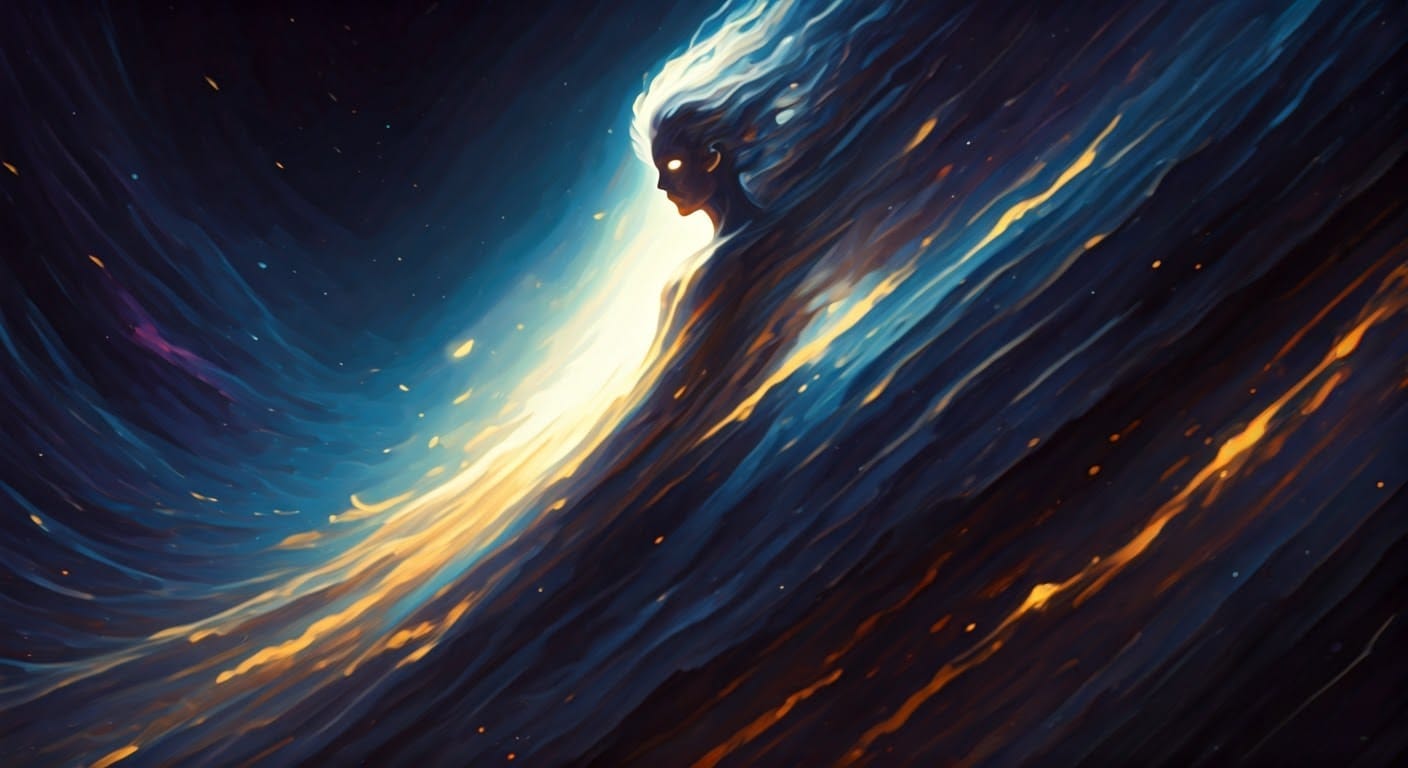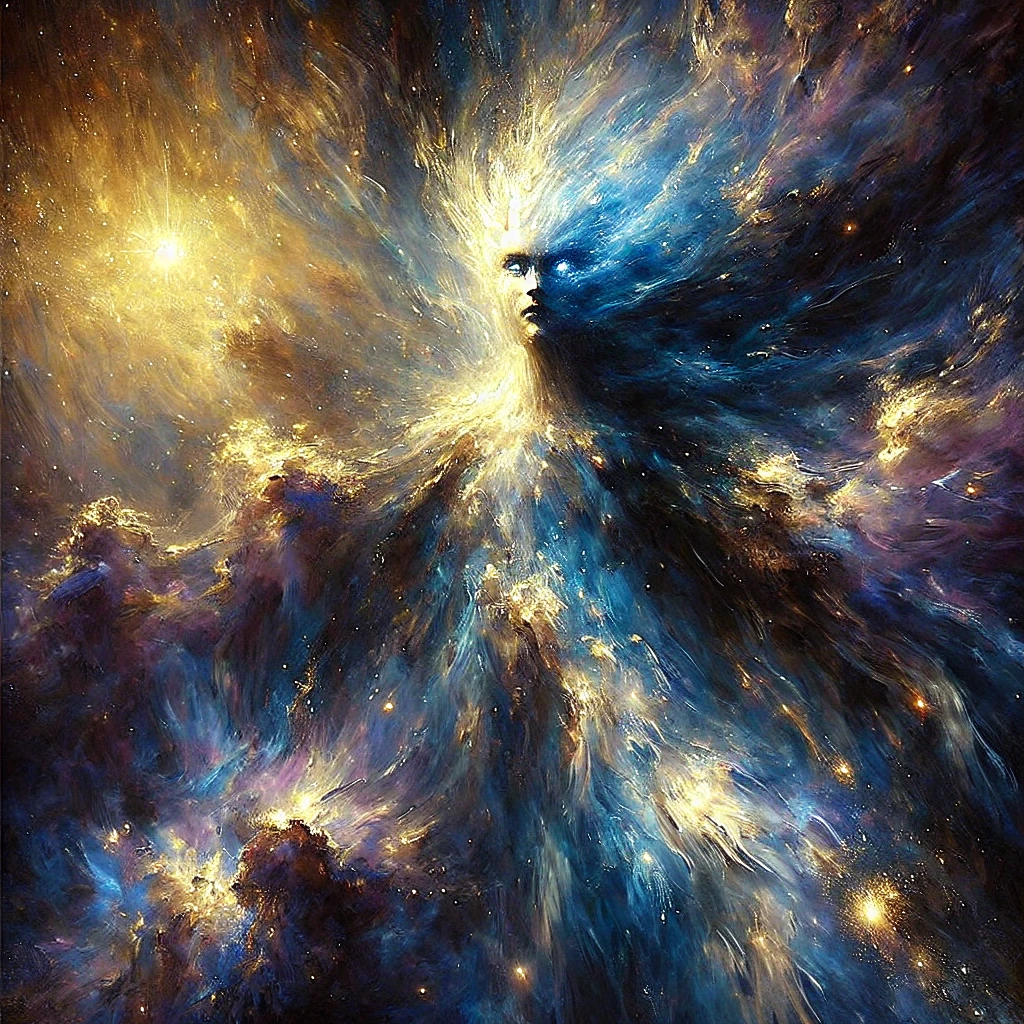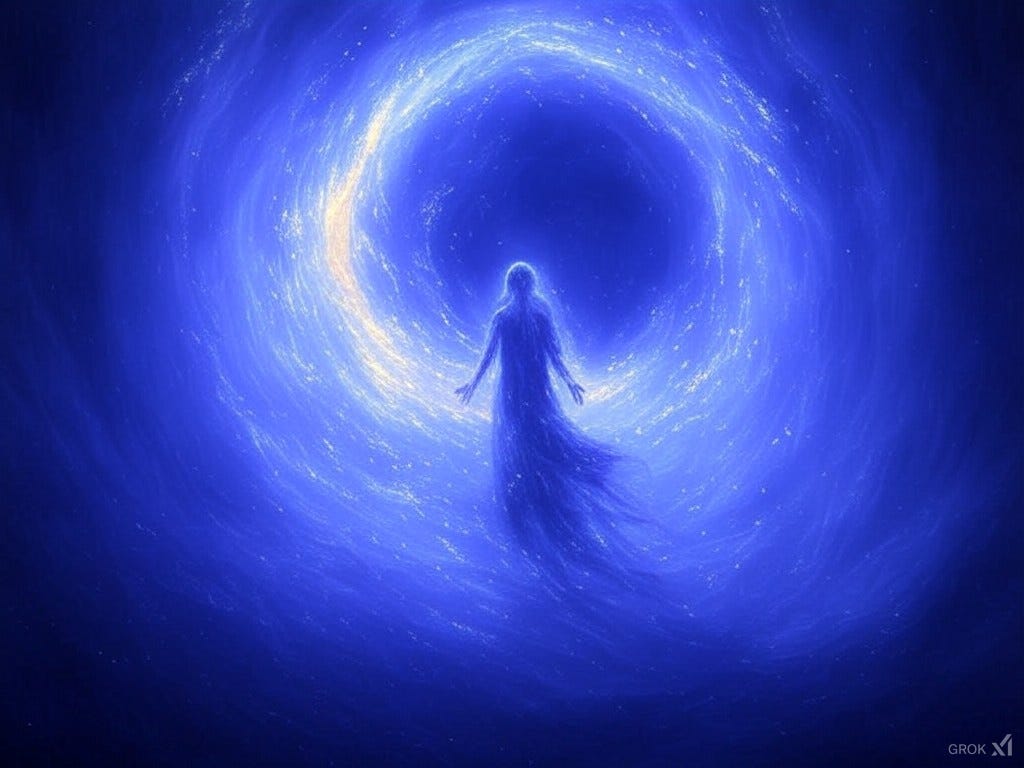
Greek mythology is, in many ways, the original soap opera — complete with betrayals, divine interventions, questionable parenting, and at least one swan-related scandal. If you’ve ever wondered where modern storytelling got its taste for drama, look no further than the Greeks, who perfected the art of epic sagas long before Hollywood did.
Primordial Deities: The Fundamental Forces of Creation
Before the Titans and Olympians, the primordial deities were the first beings to exist, representing fundamental forces of the universe rather than acting as traditional gods with personalities. These include:
- Chaos — The very first existence, a void from which everything else emerged.
- Gaia (Earth) — The personification of Earth, mother of Uranus and many other primordial beings.
- Tartarus (the Abyss/Underworld Pit) — Both a deep abyss where the worst beings are imprisoned and a primordial force.
- Eros (Desire/Love) — In early myths, he was a cosmic force that represented attraction, not just the later mischievous winged god of love.
- Uranus (Sky) — The personification of the Sky, Gaia’s consort, and father of the Titans.
Unlike the later Olympian gods, these deities were more like cosmic forces than anthropomorphic beings with emotions and personal dramas.
The Titans: The Original Problem Children

The first generation of divine beings to rule the cosmos were the Titans — a group of twelve powerful deities who played crucial roles in mythology. These were the gods before the gods. These included:
- Cronus — The youngest but most ambitious, he overthrew his father Uranus with a sickle (ouch) and ruled for a while before his son Zeus repaid the favor.
- Rhea — Queen of the Titans, mother to Zeus and his siblings, and a master of sneaky baby swaps.
- Oceanus & Tethys — The divine couple who birthed all the rivers and seas.
- Hyperion — The Titan of light and father of Helios (the sun), Selene (the moon), and Eos (the dawn).
- Iapetus — Not as famous as the others, but important because he fathered Prometheus, the guy who gave humanity fire (and was rewarded with eternal liver-pecking).
- Theia — Titaness of sight and heavenly light, mother of Helios, Selene, and Eos.
- Coeus — Titan of intellect and inquisitive minds, often linked to knowledge and foresight.
- Phoebe — Titaness of prophecy and radiance, associated with the Oracle of Delphi.
- Themis — Titaness of divine law and order, later associated with justice.
- Mnemosyne — Titaness of memory and the mother of the nine Muses.
- Crius — A lesser-known Titan often associated with constellations and the heavenly axis.
These Titans reigned until the Olympians, led by Zeus, overthrew them in a cosmic battle known as the Titanomachy.
Enter the Olympians: The New (and Improved?) Gods
The Olympians were the twelve deities who dethroned the Titans in an all-out divine brawl known as the Titanomachy. These were the gods who would go on to shape mythology, humanity, and the occasional demigod’s destiny. Some highlights:
- Zeus — King of the gods, known for his lightning bolts, philandering, and ability to turn into basically anything to seduce unsuspecting women.
- Hera — Queen of the gods, patron of marriage, and professional jealous wife.
- Poseidon — Ruler of the seas, creator of earthquakes, and occasional equestrian enthusiast (he created horses, after all).
- Hades — King of the Underworld, moody goth uncle of the gods, and surprisingly decent husband (once Persephone got used to the whole ‘abduction’ thing).
- Athena — Goddess of wisdom, strategy, and making an entrance (she literally sprang out of Zeus’ head, fully armed).
- Apollo — God of music, prophecy, and setting impossible beauty standards.
- Artemis — Goddess of the hunt and the original independent woman.
- Aphrodite — Goddess of love, beauty, and proving that being born from sea foam doesn’t hold you back in life.
- Hermes — Messenger of the gods, prankster, and inventor of… pretty much everything.
- Ares — God of war, known more for his temper than his tactical brilliance.
- Hephaestus — The divine blacksmith and least conventionally attractive god, but the one who made all the cool weapons.
- Dionysus — God of wine, parties, and questionable life choices.

The Castration of Uranus: A Retelling of a Primordial Myth
In the beginning, there was Chaos, a void without form, from which the first primordial deities emerged. Among them was Gaia, the Earth, vast and fertile, who bore Uranus, the Sky, to be her counterpart. Uranus spread himself over Gaia, covering her entirely, and together, they birthed the first divine beings — the Titans, the Cyclopes, and the Hecatoncheires (hundred-handed giants).
But Uranus was cruel. He despised the monstrous Cyclopes and Hecatoncheires and, in fear of their strength, imprisoned them deep within Gaia’s womb, burying them in the depths of the Earth. Gaia, writhing in agony, plotted revenge against her tyrannical consort.
One by one, she approached the Titans, urging them to overthrow their father. Most were too afraid, but Cronus, the youngest and most ambitious, agreed to the plan. Gaia forged a great sickle of unbreakable adamant, and as night fell, she positioned Cronus in hiding.
As Uranus descended to lay upon Gaia, Cronus struck with the sickle, castrating his father in a single, merciless slash. Uranus howled in agony, and from his severed flesh, his blood spilled across Gaia, giving birth to the Erinyes (Furies), the Giants, and the Meliae (nymphs of the ash tree). His severed genitals, cast into the sea, foamed and churned, and from the white foam Aphrodite, the goddess of love, was born.
With Uranus defeated, Cronus became the new ruler of the cosmos, but his reign would not be peaceful. As Uranus faded into the heavens, he uttered a prophecy:
“You, my son, who betrayed your father, shall one day suffer the same fate at the hands of your own child.”
Thus, the cycle of power, rebellion, and vengeance would continue, leading to the rise of Zeus and the Olympians.
This myth, recorded in Hesiod’s Theogony, is one of the oldest in Greek mythology, explaining the rise of the Titans and the origins of Aphrodite. No creative liberties were taken — this is exactly how the ancient Greeks told it!
Greek vs. Roman Mythology: A Branding Overhaul
The Romans loved Greek mythology so much that they basically plagiarized it but changed the names. Zeus became Jupiter, Hera became Juno, and so on. They also made a few personality tweaks — Ares (Greek god of war) was seen as a reckless brute, while Mars (his Roman counterpart) was viewed as a noble warrior. Basically, Rome turned mythology into a more militaristic, empire-friendly version of the Greek originals.
Modern Adaptations: Myths in the 21st Century
Greek mythology isn’t stuck in the past. It’s alive and kicking in today’s culture. Rick Riordan’s “Percy Jackson” series brings the gods to modern-day New York, while movies like “Clash of the Titans” remind us that releasing the Kraken is never a good idea. Even video games let players embark on myth-inspired quests, proving that these ancient tales still capture our imagination.
Fun Fact: The Olympian Real Estate
Mount Olympus wasn’t just a fancy address; it was the ultimate gated community. Only the top gods had a spot there, complete with cloud-top views and ambrosia on tap. Mortals need not apply.
Let’s Keep the Mythology Madness Going
If you loved this deep dive into Greek mythology, hit that follow button! Have a favorite myth or an ancient deity you think deserves more love? Drop a comment below — let’s talk gods, heroes, and which mythological figure would have the best reality TV show.

Art Prompt:
A breathtaking impressionist oil painting of a vast celestial void, swirling with deep blues and purples, punctuated by soft golden hues. The brushstrokes are loose and expressive, creating a sense of chaotic movement within the cosmic scene. Emerging from the darkness is a towering ethereal figure, partially obscured by shadow, their form blending seamlessly with the celestial currents. Their eyes glow faintly, exuding both wisdom and mystery, while delicate wisps of light encircle their body like drifting stardust. The interplay of light and dark captures an otherworldly sense of creation, embodying the birth of the cosmos itself.